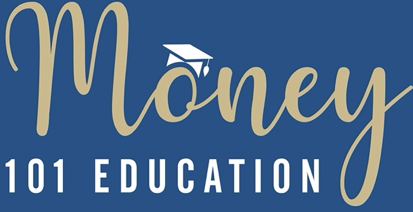
Five classes focusing on Employment (W-2 vs. 1099), Employment benefits and taxes, Preparing an Annual Budgeting for Forecasting, and a Personal Financial Statement, plus How to Improve Credit to Obtain a Loan
Class 1: W-2 EMPLOYMENT
- What key items should you negotiate and question when you take on a new job?
- What are the different pay periods (weekly, bi-weekly, semi-monthly, monthly).
- What is form W-4? How to set up exemptions and payroll deductions,
- What is the difference between an Exempt and Non-Exempt employee? What state rules prevent overtime abuse.
- How to read a paystub and understand deductions? Period vs. Year to Date
- What are pre-tax contributions? i.e., health insurance premiums, retirement savings, transit pass, Health Savings Accounts.
- 401K fundamentals, what is a match? what is vesting? How important is participation?
- Unemployment Insurance, Disability Insurance, and Paid Family Medical Leave insurance.
- Worker’s compensation and payroll classifications – critical information for employers
- W-2– how to read statements and the difference between Social Security/Medicare wages and Federal Taxable wages.
- Cap on Social Security deductions.
Class 2: INDEPENDENT CONTRACTOR EMPLOYMENT
- REVIEW HOMEWORK – Maria’s W-2
- What is an independent contractor? What tests does the IRS use to determine if a person to be an independent contractor.
- Understanding the reporting obligations when you hire independent contractors?
- What are the Self-Employment taxes you need to pay as an independent contractor?
- What is form 1099? When must an employer send a 1099? Who gets a copy.
- Review of Schedule C for independent contractors
Class 3: PREPARING A BUDGET AND FORECASTING FOR THE FUTURE
- Preparing an ANNUAL personal cash budget,
- Projecting sources and uses of funds, looking back, projecting forward.
- Understanding seasonal fluctuations in cash needs.
- Making a budget system that can be maintained.
- Tips to gathering information to ease the process of preparing your budget.
Class 4: PREPARING A PERSONAL FINANCIAL STATEMENT
- What is an Asset? different ways of evaluating assets (cost, market, depreciated basis)
- What is a Liability?
- What makes either an Asset or a Liability “Current”?
- How to list Assets and Liabilities on a Personal Financial Statement
- What is Net Worth – tracking wealth and change from year to year
- How does a PFS differ from a business Balance Sheet?
Class 5: HOW TO IMPROVE YOUR CREDIT AND APPLYING FOR LOANS
- How to obtain a free complete credit report and understand it.
- What factors influence your credit score and tricks to improve?
- What goes into a bank loan application?
- What is credit utilization?
- What is a debt/income ratio, – potential discussion of applying for a mortgage –
- How to increase your chances of getting approved for financing?
To discover when the NEXT MONEY 101 FOUNDATION SEGMENT is being offered – CLICK
HANDOUTS for this segment – CLICK
